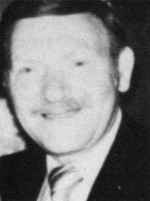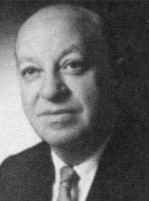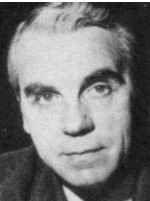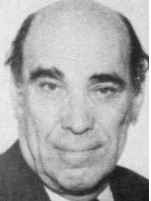 |
 |
 |
 |
|
|
English Proofreading by Dr. Susan Kingsley Pasquariella
|
|
|
|
|||||||
| Sam Solazh | Isak [Isaak]Ribalovski | I. Shmulewitz |
| I. Shmulewitz | Isak Ribalovski | Rabbi Shmuel A. Kronick | ||
| I. Shmulewitz Editor |
||||
| Book Committee of the Białystoker Centre in New York: | ||||
| Max Ratner Honorary Chairman |
Sam Solazh President |
Isak Ribalovski General Secretary |
||
| Sam Solazh, Rubin Bindler, Avraham Mintz, Paul Shochet, Harold Talin, Dina Medvedev, Charles Schvecher, Yedidya Hamburg, Sol Krim, Mike Kremer, Yaakov Beren, Dvoyre Mintz, Morris [Maurice] Molozovski, Harold Morow, Raya Zak, Yehoshua Shechter, Rabbi Shmuel A. Kronick. | ||||
Translated by Beate Schützmann-Krebs
English Proofreading by Dr. Susan Kingsley Pasquariella
Finally, after long anticipation and many efforts, we have reached our sacred goal. With pride, we present to the Białystoker landsleit[3] and friends this great book, which immortalizes the once vibrant and spirited Jewish Białystok — along with its suffering and destruction, its annihilation and resistance during the dreadful years of Hitler.
The publication of this present Białystoker Yizkor Book is the result of great efforts carried out over a relatively short period of time.
Due to various circumstances, the release of a Białystoker Yizkor Book could not be realized earlier, as had originally been planned. After the first worldwide gathering of Białystoker Jews, which took place in the State of Israel in 1970, it was decided to publish a “Seyfer Białystok” as soon as possible.
Over the course of approximately seven years, we held ongoing conversations, negotiations, and correspondence with our landsleit in Israel about jointly publishing the book. Sadly, all of this did not yield the necessary results.
The Białystoker Center in New York, however, did not wish to abandon the plan to publish a proper Yizkor Book — one that would encompass the Jewish past of our former hometown, the destruction and resistance during the Nazi era, as well as the present-day lives of our landsleit around the world.
We therefore took upon ourselves the difficult task of fulfilling this sacred mission. We did so with a deep sense of responsibility, fully aware from the outset of the challenges that lay ahead.
The Białystoker Yizkor Book is appearing at a time of renewed neo-Nazism, antisemitism, and bitter hatred toward Jews and toward the State of Israel. It is a time when the enemies of our people — from both the right and the left — are constantly striving to harm Jews and the Jewish homeland.
We see how, in our time — and likely in times to come — falsehoods and “experts” emerge: so-called scholars and researchers who, by every means, attempt to diminish and deny the suffering of the Jews, the destruction, and the annihilation under Hitler.
It is therefore good that we, the Jews of Białystok, through this book, offer our own contribution to the memory of that terrifying time — a truth that no one, ever, will be able to deny.
Much has already been written and told about the once deeply rooted and flourishing Jewish community in Białystok — as well as about its destruction and resistance during the Nazi era. The importance of publishing this great Białystoker Yizkor Book lies in the fact that this edition seeks to unify and gather many of those scattered materials into one comprehensive whole.
We wish to emphasize that, on the path toward fulfilling the sacred goal of publishing this monumental book, we encountered many obstacles and difficulties.
Yet we are proud to state, with conviction, that we succeeded in overcoming these challenges — because from the very beginning, we understood that in doing so, we were fulfilling a profound national obligation: both to the once wondrous, vibrant Jewish Białystok, and to the martyrs and the holy ones.
The Białystoker Yizkor Book, which we now hand over to our landsleit and friends, is — and will forever remain — a worthy memorial to the once wondrous and great community, with its many branches of activity in every field.
This book includes a substantial section on the suffering of the Jews during the war, as well as on the heroic resistance. It also recounts the attempt to rebuild Jewish life in Białystok after the war — an effort that did not succeed, just as it failed in other places across Poland.
It must be noted that, because the book was published with a delay, the difficulties in bringing it to completion were all the greater. This is largely due to the fact that many landsleit who might have helped with this task are, sadly, no longer with us.
[Page VI]
The entire responsibility for compiling and publishing the Yizkor Book therefore fell to a small number of individuals, who carried out this sacred mission with great dedication.
Through this path, we wish to express our heartfelt thanks and recognition to all our landsleit and friends who helped bring about the publication of this great Białystoker Yizkor Book.
In response to the appeal and call from our Book Committee to the Board of Governors of the Białystoker Center, we achieved positive results.
It is thanks to this — thanks to the dedication of our landsleit and friends — that it was possible to reach this sacred goal.
Special thanks and deep appreciation go to a number of individuals, without whom the publication of this book would not have been possible.
One of the principal initiators of the Yizkor Book — truly the driving force— was our esteemed Białystoker landsman, the prominent industrialist and well-known communal activist, Max Ratner of Cleveland.
Much time, energy, and effort in preparing the publication of the book was devoted by the ever-dynamic Isak (Isaac) Ribalovski, General Secretary of the Białystoker Center, Home and Hospital for the Aged.
We also wish to express our deep appreciation to the well-known Jewish writer, the tireless advocate, and unwavering voice reminding us never to forget the Jewish destruction — the editor of this great Białystoker Yizkor Book, I. Shmulewitz.
Much work and effort in bringing this book to completion was carried out by Rabbi Shmuel A. Kronick, chaplain of our Center, who translated the Yiddish manuscript into English and served as editor of the English section.
We also gratefully acknowledge the dedication and professionalism of R' Tzvi Hirsh Gansbourg and R' Mordechai Chen, proprietors of Empire Press, where the Yizkor Book was printed, for their efforts to ensure that the book was produced properly and with care.
We extend heartfelt thanks to the well-known printing specialist and seasoned expert in Jewish publishing, Louis Evans, for his devoted correction of the Yizkor Book and for ensuring that it was completed with proper knowledge and precision.
Great appreciation also goes to Ginger Bramson, who made stylistic improvements to the English translation.
Through this message, we also wish to express our recognition to the leaders and activists of the Białystoker landsmanshaftn in Argentina, the State of Israel, Australia, and other places, for their cooperation and assistance in publishing the book.
The landsleit in Argentina decided to translate part of the Yizkor Book into Spanish — just as it was done in English — so that the children of Białystoker landsleit in Latin American countries may also become familiar with their roots.
Over the course of hundreds of years, the Jews of Białystok cultivated a long and noble lineage. This old, deeply rooted community inscribed a remarkable chapter in the history of the once-renowned Polish Jewry — and among Jews in Eastern Europe as a whole.
Throughout all times, the Jews of Białystok led a richly branched and creative Jewish life, which consistently inspired admiration from all who encountered it.
Białystoker Jews have always — and still do — helped to strengthen, preserve, and uphold Jewish life in every sphere, wherever they have settled, in all parts of the world where new homes were built.
The Jewish Białystok has always produced prominent and renowned individuals who helped enrich both Jewish and general life.
With the publication of this present, great Białystoker Yizkor Book, we have all fulfilled a sacred mission.
May this new and worthy book, which we now hand over to our landsleit and friends in America and across the world, serve as a memorial to the greatness of the once-flourishing Jewish Białystok.
May it be an eternal monument to the community so cruelly torn apart by the Nazis and their collaborators.
And may this book forever also serve as a worthy matseyve — a gravestone — to all our dear ones who were murdered: for the holy ones and martyrs, whose tormented and shattered lives now rest in graves and beneath headstones.
New York, December 1981
The Book Committee
Translator's notes:
English Proofreading by Dr. Susan Kingsley Pasquariella
We also wish, through this message, to express our heartfelt thanks and recognition to a number of landsleit who contributed special and substantial donations — in memory of their loved ones — which made it possible to publish this historic Yizkor Book, a project associated with considerable costs. They are: Max and Betty Ratner, in memory of their parents Moshe and Peshe Ratovtser Michael Sapirshteyn, in memory of his grandparents Louis and Mary Davis Maxwell Dane and wife, in memory of their parents Avraham and Sofia Dane Hirsh and Stella Feygin, in memory of their parents Beynush and Frume Lea Feygin, Shimen and Miryam Knishinski. Herman and Jane Abelson, Maurice and Lorraine Abraham, in memory of father Daniel Abelson Max and Tibi Podel, in memory of their parents Avraham and Mini Podolski Yosef and Neshke Dobriman, in memory of their parents Shaye and Frida Dobriman, Avraham and Yehuda Goldberg Rose and Sam Solash, in memory of their parents Shamai and Esther Solazh Felicia Drezner and Karl Shabri, in memory of Lazar Shabri (Shabrinski) Molly and Isak [Isaac] Ribalovski, in memory of their parents Sheyne Gitl and Khayim Goldberg, and Dvoyre and Meir Ribalovski Dina Medvedev and Sara Abelson, in memory of our beloved grandmother, a true Eshet Khayil [Matriarch], Golde Katz Abe and Dvoyre Mintz-Silbershteyn, in eternal memory of my murdered brothers Shloyme and Yankel Silbershteyn, with their families
Edith, Sheldon, and Norman Gering, in memory of husband and father George Gering |
Translated by Beate Schützmann-Krebs
English Proofreading by Dr. Susan Kingsley Pasquariella
As I read the pages of this sacred Yizkor Book, I feel as though I am suddenly transported back to the time of my childhood — to the place of my origins. Among my treasured, carefully preserved belongings from many years ago is a notebook from my fourth-grade class at the Beit HaSefer HaAmi HaIvri HaRishon[3] in Białystok — one of the city's most respected educational institutions, where I studied at the time.
On the first page of that notebook is, in Hebrew, a poem titled The Promise. And on the next page is HaTikvah — The Hope.
These two titles, within that small notebook, contain what is dearest to me.
Long ago, I made a promise: to keep alive the memories of life in Poland — to speak about it, and to tell my children, with the hope that they too would pass it on to their children, and that it would continue on through the generations.
Because with each passing year, there are fewer and fewer of us Białystoker Jews. And with that, the telling and passing down of the story of Jewish life in our once-beloved hometown will also gradually fade.
That is why I am grateful that the history of Jewish Białystok is now, in a worthy manner, preserved in this historical book — and through it, the elevated story of Jewish Białystok, meaning the lives of our parents and grandparents, as well as of many generations past, will not be forgotten.
I have visited Jewish cemeteries in many countries around the world. I have seen traces from nearly every era of our dispersion. From time to time, one sees an old shul [synagogue] or certain ruins. Others encounter descriptions and reports from historians, government writers, and the like — those who strive to piece together remnants of history into a chronology.
Often, one must assume that such material is at times ambiguous and theoretical, rather than factual. This became even clearer to me when, on my journey to the State of Israel in 1967, I also traveled to Białystok — the city of my origins.
I have read much about the Jewish destruction under Hitler. I have seen films about that earthly hell. I have also spoken with Jews who, by miracle, were saved from the Nazis. But when I saw the indescribable changes in the city of my birth and childhood, it shook me to the deepest core.
Jews lived in the land of Poland before there even was a Poland.
Over the course of a thousand years, they built a flourishing civilization — rooted in deep faith, honesty, and devotion, and marked by rich cultural achievements and elevated intellectual contributions.
Suddenly, however, the Nazi flood of destruction and devastation descended. And within five years, more than three million Jewish men, women, and children in Poland were murdered. The Nazi murderers destroyed and annihilated everything the Jews had created over the span of a thousand years.
In the year 1900, Białystok was the third-largest industrial city in Eastern Russia. Of its general population of 65,000 at that time, 64 percent were Jews. In 1913, when the general population of Białystok reached 91,000, there were 60,000 Jews living there.
More than 350,000 Jews lived in Białystok and the surrounding province.
Despite the decrees and hardships imposed by the Tsarist rulers of the time, Jews nevertheless built a beautiful and spiritually rich life of their own. Jews did everything to avoid assimilation and being swallowed by their surroundings — they did not remain in one place.
[Page X]
At the beginning of the Haskala [Jewish Enlightenment] movement, Jews in Białystok were able to study — and to teach — Torah, while at the same time actively contributing to the development and expansion of a Jewish national and secular life.
They fought for their rights and established institutions of cultural, social, and economic importance — all to strengthen and spiritually enrich their lives.
This spirit of shared cooperation, accompanied by a deep sense of responsibility, gave the Jews the strength to carry on a life marked by pride and dignity.
As a result, a vibrant network of Jewish educational institutions flourished in this renowned industrial city — alongside newspapers, theaters, cultural clubs, associations, homes for the elderly, Zionist and workers' organizations, a broad Jewish religious life, and more.
It was a kehile [Jewish community] of significant achievements and steady growth.
Jewish Białystok produced a wide array of renowned individuals — among them scholars, physicians, researchers, historians, prominent educators, rabbis, and others — who later became well known throughout the broader Jewish world.
Indeed, Jewish Białystok was active in the renewal and development of the Jewish homeland even before Dr. Herzl officially founded Zionism in 1897.
Already in the early 1880s, as the first ideological shoots of pre-Zionist thought began to sprout in Russia, the group Bil'u (Beit Yaakov Lechu VeNelcha) was formed, and its bureau was established in Białystok.
The first of them left Białystok for the Land of Israel in 1882 and founded Rishon LeZion [“First to Zion,” one of the earliest Jewish agricultural settlements in Ottoman Palestine], with the help of the Rothschilds.
My parents were married in 1889. They prepared to join the second group, but were denied permission to emigrate by the Tsarist authorities.
In the years that followed, there was a steady stream of Jews from Białystok to the Land of Israel.
From my class at school in Białystok in the year 1920, 14 out of 29 students had emigrated to [Eretz] Yisroel by around the year 1935.
Fresh in my memory are the recollections of my first day at school in 1910, at the age of three; of the first electric weaving looms in 1911, which also brought electric current into our home on Tshiste [Czysta] Street; and of the 300th anniversary parade in honor of the Kingdom of Peter the Great, when Tsar Nicholas II visited Białystok in 1913.
I also remember the beginning of the First World War in 1914, when three hundred children were killed on their way to school by German bombs.
And I remember my mother, in 1917, during a celebration of the Balfour Declaration, giving away her golden earrings to help build the Jewish homeland.
I have vivid memories of studying at the first school where Hebrew was the primary language of instruction, which opened in 1918 — one day after the end of the German occupation, when Poland became an independent state.
I remember my first membership in a Zionist club at our school. I still preserve the notebooks from my history and geography courses, as well as a Hebrew songbook — from the time when the well-known teachers, Leyb Poyans and Moyshe Levin, translated Russian books into Hebrew, since no textbooks were yet available in Hebrew.
In my later years, in the 1960s and 1970s, when I visited the State of Israel, I met several former classmates from my early school days, who had emigrated to Israel.
I wish to offer a heartfelt appeal and blessing to today's English-speaking readers — the second generation, children of Białystoker parents — who are our link to the future.
We have devoted great effort, time, and energy so that you too may read and learn about our once-beloved home, and about the greatness of Jewish life that once flourished there.
We have made it possible for you to read this in your own language.
The pages that follow carry a message that must — and will — inspire you.
[Page XI]
They will surely leave a lasting influence on your life. Through them, you will gain a deeper awareness and a greater appreciation of your heritage and identity.
It is our hope that, through this book, you will also find a clearer vision of the path ahead as you move forward into the twenty-first century.
I appeal to you: serve as a living link to your parents' immortality. There is much in our experiences and achievements — especially as Białystokers — that holds deep meaning for you as well.
Do not surrender to passivity or indifference. To do so would help fulfill Hitler's plan to erase the history and cultural richness of the Jewish people.
Let Jewish Białystok — and all that is dear to us — live on through you and your descendants.
Today, Białystok has 268,000 residents — and only seven Jews. The great historical significance of its once-thriving Jewish life has come to a tragic end.
This is the sorrowful reality: what was once wondrous is now merely a chapter in the history of our people.
Yet you will encounter Białystoker Jews in every corner of the world — still carrying the proud lineage of their origins, from that once-renowned hometown.
This Yizkor Book is also an important part of my commitment and hope for future generations — a legacy to deepen awareness of our great national loss, and at the same time, to nurture pride in our spiritual inheritance.
Max Ratner
Cleveland, Ohio
|
|
First row (left to right): Dina Medvedev, Rubin Bindler, Sam Solazh, I. Shmulevitz, Raya Zak, Yedidya L. Hamburg Second row: Yehoshua Schechter, Moyshe Molozovski, Paul Shochet, Dvoyre and Abraham Mintz, Isak Ribalovski Third row: Sol Krim, Meishl Kremer, Charles Shweber, Rabbi Shmuel A. Kronick, Jacob Beren, Harold Talin, Harold Morrow |
Translator's notes:
|
|
JewishGen, Inc. makes no representations regarding the accuracy of
the translation. The reader may wish to refer to the original material
for verification.
JewishGen is not responsible for inaccuracies or omissions in the original work and cannot rewrite or edit the text to correct inaccuracies and/or omissions.
Our mission is to produce a translation of the original work and we cannot verify the accuracy of statements or alter facts cited.
 Białystok, Poland
Białystok, Poland
 Yizkor Book Project
Yizkor Book Project
 JewishGen Home Page
JewishGen Home Page
Copyright © 1999-2026 by JewishGen, Inc.
Updated 28 Oct 2025 by LA